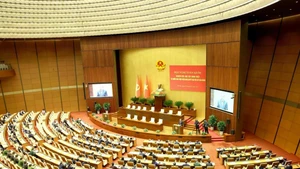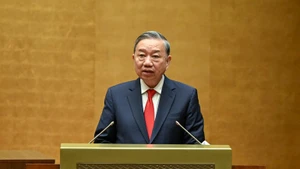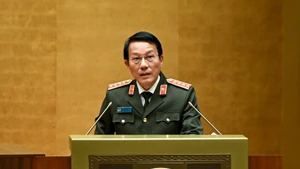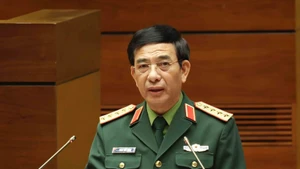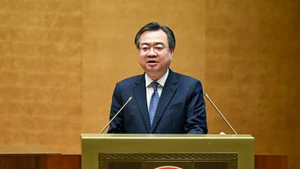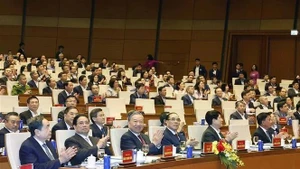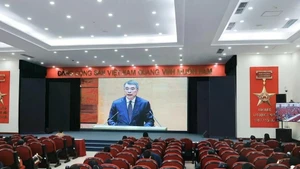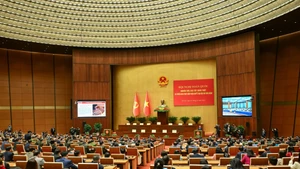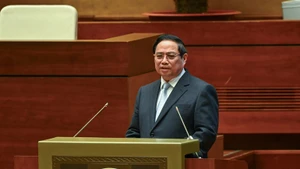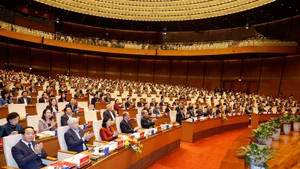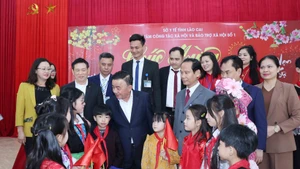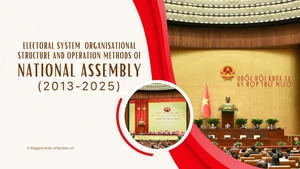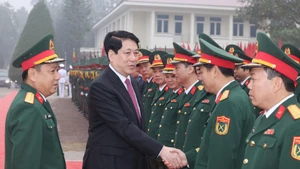The Plan aims to build a comprehensive, modern and professional diplomatic service that meets the requirements of advancing external relations and international integration, a regular and crucial task, commensurate with Viet Nam’s growing standing and strength.
The diplomatic service is to truly become the pioneering and core force in successfully implementing the Party and State’s foreign policy. At the same time, the Plan translates the Party’s guidelines and orientations on foreign affairs into concrete tasks and solutions for the development of the diplomatic service to 2030, with a vision to 2045.
To achieve this objective, the Plan outlines a number of key tasks and solutions, including: improving institutions and working processes; enhancing effective coordination mechanisms with ministries, sectors and localities in external affairs; streamlining and rationalising the organisational structure of the Ministry of Foreign Affairs and Viet Nam’s overseas missions to ensure efficiency and effectiveness; strengthening and improving the quality of diplomatic personnel and staff engaged in external work across central and local levels; ensuring appropriate budget allocations; modernising facilities, equipment and IT infrastructure towards digitalisation, smart connectivity and wide integration; building a clean and strong Party and mass organisation within the diplomatic service; and promoting the identity of the diplomatic sector in the new era.
Specifically, the Plan calls for improving legal regulations and operational mechanisms to enhance the quality and effectiveness of Viet Nam’s treaty-making and implementation of international agreements, thereby contributing to international integration in the new context.
It also seeks to accelerate administrative reform in the Ministry’s operations by simplifying procedures and promoting digital transformation, while fostering dynamism, flexibility and adaptability.
In addition, the Plan stresses the need to review and refine the functions and tasks of the Ministry of Foreign Affairs after its assumption of responsibilities from the Party’s Central Commission for External Relations and part of the duties of the National Assembly’s Committee for External Relations.
It also calls for standardising the functions, tasks, organisation and operations of external affairs and international cooperation bodies within ministries, sectors and local administrations.
Other notable tasks include: developing Viet Nam’s overseas mission network in line with foreign policy orientations and the country’s international role and reputation at each stage; striving to establish around 115 missions worldwide by 2030 and about 150 by 2045; and devising mechanisms and plans to train and develop experts and specialists in priority areas of diplomacy.
The Plan also emphasises supplementing and advancing Viet Nam’s diplomatic theory; inheriting and promoting the nation’s tradition of peaceful diplomacy, and the wisdom and humanity of Ho Chi Minh’s diplomatic thought; selectively drawing on the best practices of global diplomacy; and nurturing, safeguarding and developing the diplomatic sector’s core values: Loyalty – Solidarity – Courage – Wisdom – Creativity.
Furthermore, it proposes researching, developing and publicising a visual identity and motto for the diplomatic service. This identity will be applied across all workplaces of the Ministry and overseas missions. The Plan also encourages the production of digital communication products and the use of social media to provide the public with highlighting the history and traditions of Viet Nam’s diplomacy, while strengthening its global image in the new era.

